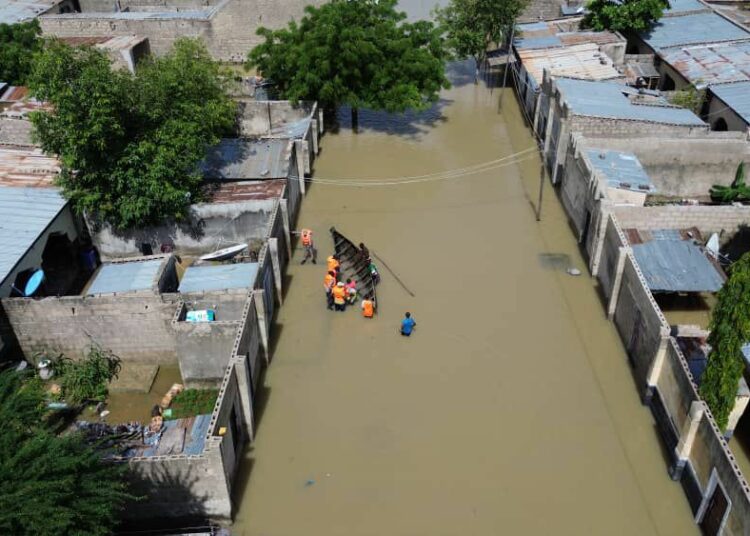The United Nations Children’s Fund (UNICEF) has said that flooding disrupted the learning of 2,200,000 children in Nigeria in 2014, highlighting the impact of Climate Change on learning.
The Chief of UNICEF Field Office in Kano, Rahama Farah, disclosed this on Friday while briefing journalists on the event of the 2025 International Day of Education (IDE) which is celebrated on January 24 as declared by the UN General Assembly in December 2018.
According to UNICEF chief, a report released by organisation’s study on the disruptive impact of Climate Change on learning in 85 countries, including Nigeria, revealed the statistics.
For instance, Farah said in Jigawa State, last year’s flooding has damaged or destroyed 115 school buildings and facilities, making them unsafe or unusable for learning activities.
“This has led to prolonged school closures and a lack of educational resources for about 92,518 (Female- 43,813; Male- 48,705) children of school age across the 27 LGAs in the state.
“With the support of partners, including the Foreign, Commonwealth and Development Office of the UK, UNICEF is supporting the States of Kano and Jigawa to provide climate resilient learning environment to mitigate the impact of climate change on learning.
“In the last one year, UNICEF has engaged 1,000 youths (350 in Jigawa, 650 in Katsina) on acting on the Climate Change, resulting in the planting of 200 trees in Jigawa and 100 trees in Katsina States, respectively,” he maintained.
While stressing that education serves as an engine of development for every society, he called on the Kano, Jigawa and Katsina State governments to address the barriers that hinder children from accessing quality basic education especially with the states having records of 16 per cent of the 10.2 million out-of-school primary education-aged children.
The UNICEF Chief, therefore, commended their efforts on the increase of education budgets in their various states but further urged them to ensure the release and spending of appropriated funds.






